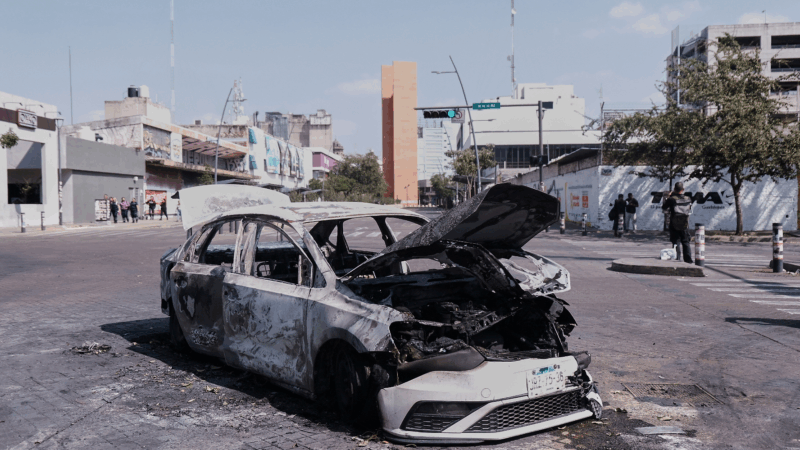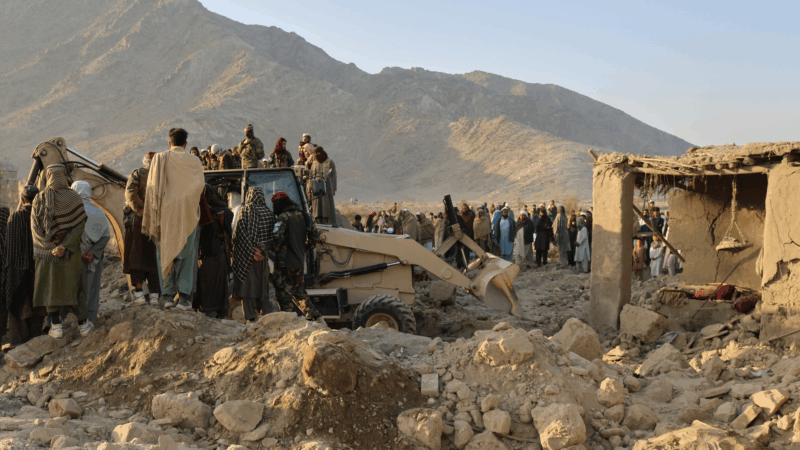North Korea has a new luxury beach resort. But the country isn’t open to most tourists
SEOUL, South Korea — When President Trump met North Korea’s leader Kim Jong Un for a historic summit in 2018, he tried to show a rosy future North Korea could aspire to.
“As an example, they have great beaches. You see that whenever they’re exploding their cannons into the ocean,” Trump told reporters. “I said, you know, instead of doing that, you could have the best hotels in the world right there.”
The nuclear negotiations between Trump and Kim fell apart, but a version of Trump’s imagination has become reality. This week, a splashy resort opened in the city of Wonsan on North Korea’s eastern seacoast.
The Wonsan Kalma Coastal Tourist Area stretches across the 2.5-mile beach of the Kalma Peninsula. The shorefront is lined with some 400 buildings, including high-rise hotels and villas that can accommodate around 20,000 guests, according to North Korean state media. The zone also has cultural and commercial amenities like a water park, gym, concert hall, restaurant, auto shop, car wash, beer hall and department store.
Analysts say the opening of this luxury resort shows that Pyongyang is pursuing economic prosperity as well as — not instead of — military ambitions and reclusive dictatorship.
“A world destination”
North Korea tested missiles in the same city of Wonsan as recently as in May. Even though Kim Jong Un said he wants it to become a “world destination,” there’s no indication yet that the resort will be open to most foreign tourists.
Since his early years as leader, Kim has pushed for tourism as a means to boost his country’s sanctions-ridden economy, as tourism is one of the few remaining legitimate sources of foreign currency revenue for North Korea. He also wants the industry to spur growth in remote regions that lag far behind the capital Pyongyang.
But North Korea’s continuing military advancements and deepening isolation have dampened this drive.
Even as a marquee project, the Kalma tourism zone took nearly a decade to build amid international sanctions and pandemic lockdown. After it broke ground in 2016, its initial deadline of 2018 was delayed multiple times.
The resort started receiving domestic tourists on Tuesday, but it’s unclear if they will be the kind of economic stimulants the regime hopes for. North Korea restricts freedom of movement and suffers from persistent economic hardships, with around 60% of North Koreans estimated to be in poverty.
The country has still been reluctant to allow in foreign tourists. Earlier this year, North Korea let a group of Western tourists enter for the first time since it shut its borders during the start of the COVID pandemic in 2020, only to abruptly stop again after three weeks without explaining why.
Tourist groups from China, which made up most of the foreign travelers visiting North Korea pre-pandemic, are yet to return.
Will Russians come?
The only exception to the tourism pause has been Russians, with whom North Korea has rapidly increased exchanges and cooperation since the two countries signed a mutual defense treaty in 2024.
Russians will likely be the first foreign visitors to the new resort as well. North Korea invited Russian Ambassador Aleksandr Matsegora as a special guest to last week’s ceremony celebrating the resort’s completion. Russian news agency Tass reported last week that the first batch of Russian tourists will depart for Kalma next week.
But fewer than 900 Russians traveled to North Korea in 2024 for leisure, according to Russian customs data, compared to hundreds of thousands of Chinese tourists who once visited the country annually.
Researcher Lee Sangkeun of the Seoul-based government think tank Institute for National Security Strategy notes travelers from major Russian cities would not find North Korea an attractive destination worth the long trip and heavy restrictions and surveillance on foreign visitors.
Lee also points out North Korea’s poor infrastructure and vulnerability to geopolitical fluctuations as reasons to be skeptical about its tourism ambitions.
In last week’s ceremony, however, Kim Jong Un touted the “diverse and rich tourism resources and unique political stability and institutional durability” of his country. He vowed to build additional large tourist resorts “based on the success and experiences gained in the Kalma development.”
Mexican army kills leader of Jalisco New Generation Cartel, official says
The Mexican army killed the leader of the powerful Jalisco New Generation Cartel, Nemesio Rubén Oseguera Cervantes, "El Mencho," in an operation Sunday, a federal official said.
Ukraine’s combat amputees cling to hope as a weapon of war
Along with a growing number of war-wounded amputees, Mykhailo Varvarych and Iryna Botvynska are navigating an altered destiny after Varvarych lost both his legs during the Russian invasion.
University students hold new protests in Iran around memorials for those killed
Iran's state news agency said students protested at five universities in the capital, Tehran, and one in the city of Mashhad on Sunday.
Pakistan claims to have killed at least 70 militants in strikes along Afghan border
Pakistan's military killed at least 70 militants in strikes along the border with Afghanistan early Sunday, the deputy interior minister said.
Team USA faces tough Canadian squad in Olympic gold medal hockey game
In the first Olympics with stars of the NHL competing in over a decade, a talent-packed Team USA faces a tough test against Canada.
PHOTOS: Your car has a lot to say about who you are
Photographer Martin Roemer visited 22 countries — from the U.S. to Senegal to India — to show how our identities are connected to our mode of transportation.






